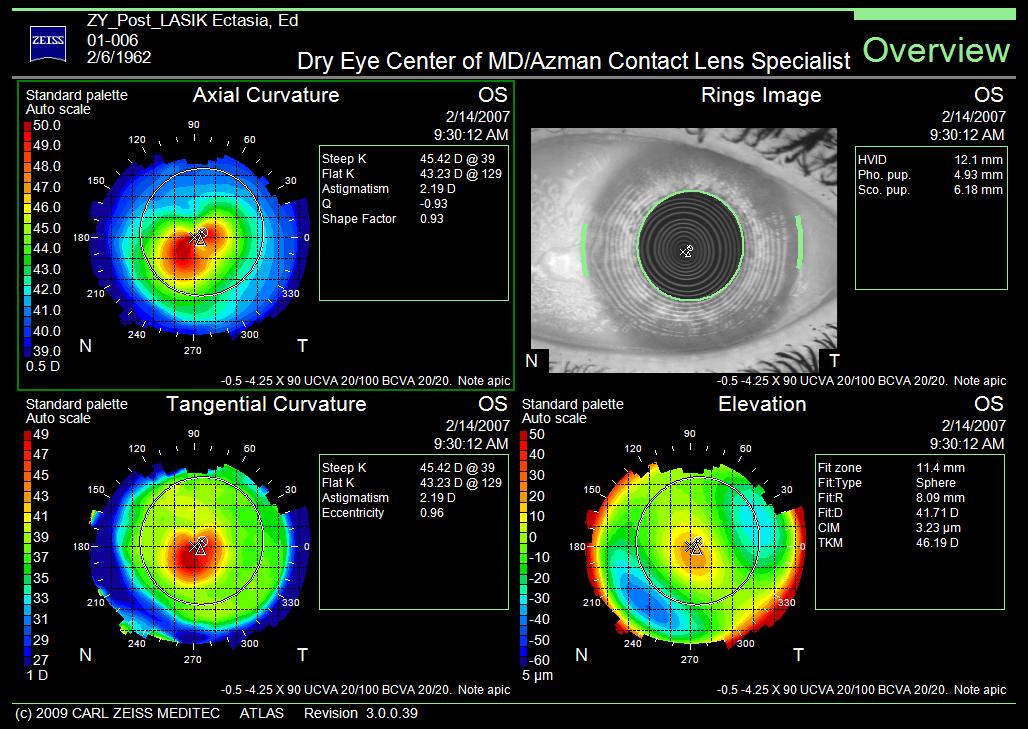CBS NEWS November 2019
LASIK eye surgery should be taken off market, former FDA adviser says
LASIK eye surgery has been popular for more than 20 years, with an estimated 20 million Americans undergoing the procedure to correct nearsightedness and improve distance vision. But some patients say the surgery has ruined their eyesight. The quick, minimally-invasive surgery uses a laser to cut a flap to reshape the cornea at the front of the eye. Now an expert who once backed LASIK is campaigning to get it off the market. Abraham Rutner said LASIK surgery damaged his vision and nearly ruined his life. “It’s a devastation that I can’t even explain,” Rutner told CBS News medical contributor Dr. Tara Narula. “Things would appear double. Around the lights were like having starbursts,” he added…. click here to continue the story.
Dr. Irwin Azman is one of the leading LASIK consultants with over 25 years of experience in the diagnosis and management of Post LASIK complications and side effects. Dr. Azman affirms that although patients may experience side effects due to pre-existing eye conditions, there are non-surgical treatments to help those with LASIK complications. Together with his team of technicians, as well as being aided by new technologies in instrumentation and new treatment methods, Dr. Azman is able to prescribe each patient with a solution to resolve their Post LASIK complications without further surgery.
According to Dr. Azman: “While LASIK surgery can be successful under optimum eye conditions, unfortunately many patients do experience side effects due to pre-existing conditions. However, there is hope. Utilizing our vast experience and expertise, as well as an array of new technologies, we are able to treat these side effects with non-surgical techniques.”
Thankfully we can help with Post LASIK Complications!
If you or a loved one are living with LASIK Complications then call us to learn about treatment options. 410-561-6071
